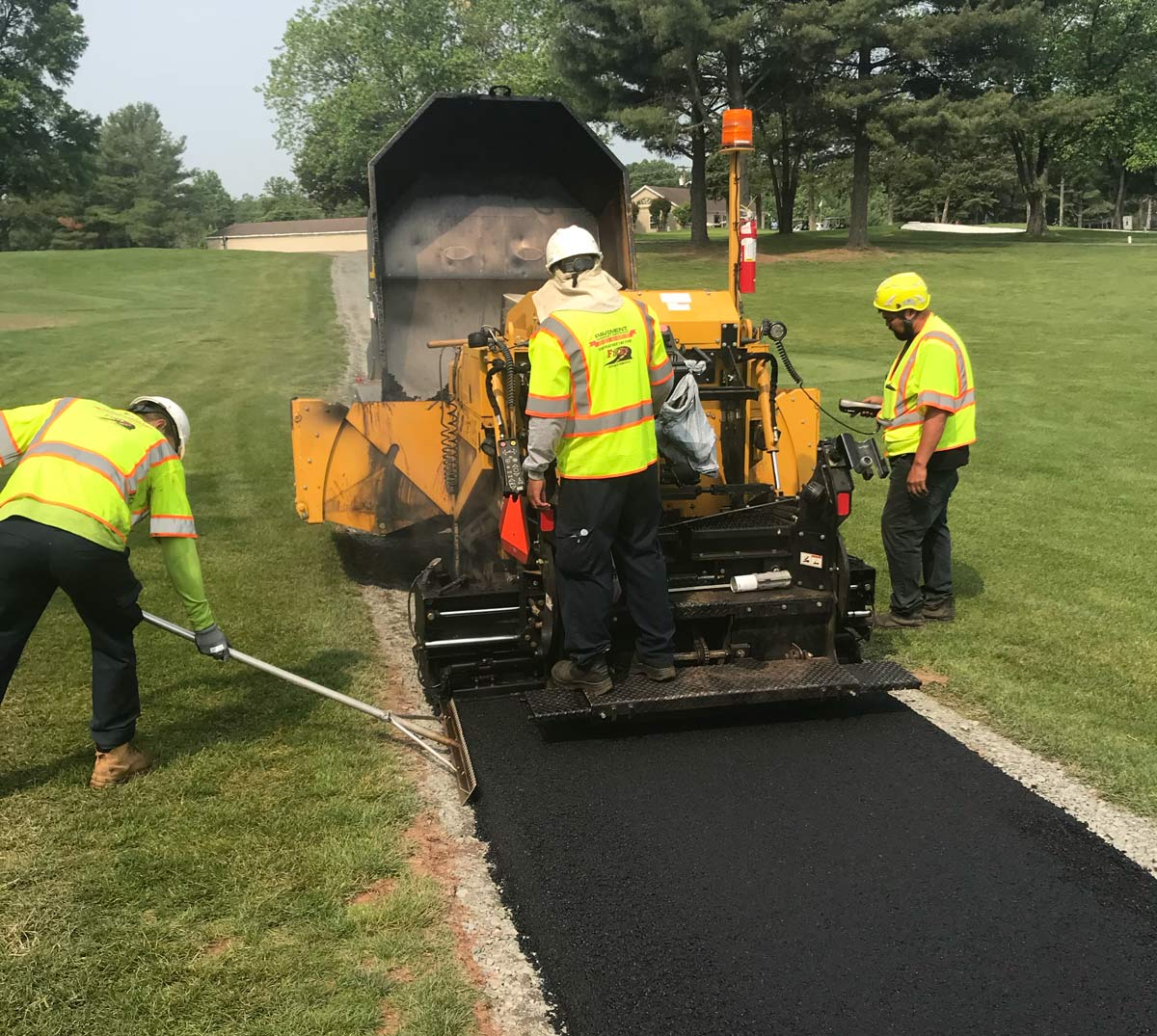Enhance Durability with a Quality Paving Service
Enhance Durability with a Quality Paving Service
Blog Article
Exploring the Numerous Types of Asphalt Paving and Their Advantages
From the robust qualities of Hot Mix Asphalt to the green attributes of Recycled Asphalt Pavement, comprehending these alternatives can significantly influence project results. Technologies such as Cozy Mix Asphalt and Porous Asphalt introduce additional layers of effectiveness and sustainability.
Hot Mix Asphalt
When thinking about one of the most reliable leading remedies, warm mix asphalt (HMA) stands out as a premier option for numerous applications (paving). HMA is a flexible paving material understood for its longevity, adaptability, and total efficiency. It is generated by heating asphalt binder and combining it with aggregates at heats, making sure a consistent blend that can hold up against numerous ecological problems
One of the main advantages of HMA is its ability to provide a smooth, skid-resistant surface, enhancing safety and security for lorries and pedestrians alike. In addition, HMA displays exceptional resistance to deformation, making it suitable for high-traffic locations such as highways and parking area. Its versatility to various climates additionally adds to its extensive use.
The installation procedure of HMA is fairly quick, permitting reliable job completion with very little disruption to traffic. It can be recycled, reducing waste and advertising sustainability within the building industry. paving service. In general, hot mix asphalt continues to be a top choice for leading experts due to its durable performance features and long-lasting cost-effectiveness, making it a dependable solution for different infrastructure demands
Warm Mix Asphalt
Cozy mix asphalt (WMA) offers a cutting-edge alternative to warm mix asphalt, offering comparable benefits while calling for lower manufacturing temperature levels. Generally created at temperatures between 190 ° F and 250 ° F, WMA modern technology decreases power consumption and greenhouse gas discharges throughout manufacturing, making it an extra environmentally friendly alternative.
This flexibility can lead to boosted compaction and total toughness of the asphalt surface. In addition, WMA can be utilized in various applications, ranging from highways to domestic driveways, without compromising performance.

The incorporation of ingredients or changed binders in WMA adds to its improved properties, ensuring that it meets or goes beyond performance criteria. WMA's reduced thermal influence throughout production can decrease the chance of damages to the surrounding atmosphere, making it an appealing selection for lasting paving methods.
Cold Mix Asphalt
Cold mix asphalt is a versatile leading solution frequently used for momentary repair work and low-traffic locations. This type of asphalt is created at ambient temperatures, making it a practical selection for quick solutions and projects where standard warm mix asphalt may not be viable. The mix commonly contains asphalt binder, accumulation, and ingredients, allowing it to stay practical for a prolonged duration.
Among the primary benefits of cool mix asphalt is its ease of application. It can be set up without customized tools, making it available for smaller sized professionals and do it yourself fanatics. In addition, cold mix can be applied in different climate conditions, which is particularly helpful for immediate repair needs.

Cold mix asphalt is likewise economical, as it permits economical fixings without sacrificing high quality. Its versatility makes it appropriate for covering holes, filling cracks, and resurfacing driveways. It may not offer the same long-term durability as warm mix asphalt, its fast application and flexibility make it an exceptional option for short-term services and low-traffic applications. In general, cold mix asphalt remains a sensible alternative in the asphalt paving landscape.
(click here)
Porous Asphalt
Porous asphalt is a cutting-edge paving option developed to enhance stormwater monitoring and minimize surface runoff. This kind of asphalt features an unique framework that integrates interconnected voids, permitting water to permeate through the surface area and into the underlying layers. By facilitating all-natural drainage, permeable asphalt assists mitigate the threat of flooding and decreases the burden on local stormwater systems.
One of the key benefits of permeable asphalt is its capability to boost water high quality. As stormwater filters through the sidewalk, pollutants and debris are trapped, lowering the number of impurities that go into local rivers. This contributes to much healthier communities and sustains compliance with ecological policies.
In addition, porous asphalt can boost the longevity of the pavement itself. By reducing water build-up externally, it reduces the possibility for freeze-thaw cycles that can cause fracturing and wear and tear. In addition, the reduced requirement for typical stormwater administration framework can result in expense financial savings for municipalities and designers.
Recycled Asphalt Sidewalk
(see more)Recycled asphalt sidewalk (RAP) stands for a sustainable method to road construction and maintenance that benefits both the setting and the economic situation. By reusing existing asphalt materials, RAP reduces the need for new basic materials, which consequently saves natural sources and reduces ecological effect. This practice reduces energy usage and greenhouse gas emissions connected with the manufacturing of new asphalt.
The unification of RAP into brand-new pavement blends can additionally bring about significant cost savings. Professionals can take advantage of recycled materials to minimize total task expenditures, making it a financially sensible alternative for municipalities and private developers alike. Additionally, RAP offers comparable performance characteristics to virgin asphalt, ensuring resilience and longevity in road surface areas.
RAP's convenience permits it to be made use of in different applications, including highways, car park, and residential driveways. By boosting the architectural stability of existing pavements, description RAP adds to boosted security and smoothness of roadways.
Conclusion
To conclude, the varied kinds of asphalt paving each offer distinctive benefits tailored to details needs. Hot Mix Asphalt masters durability and quick setup for high-traffic areas, while Cozy Mix Asphalt improves sustainability through lowered energy consumption. Cold Mix Asphalt works as a cost-effective option for immediate repair work, Porous Asphalt effectively takes care of stormwater, and Recycled Asphalt Pavement advertises environmental duty. Collectively, these leading options add to reliable, green practices in the building and construction market.
Report this page